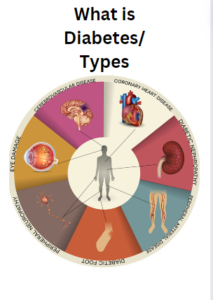Natural Sleep Remedies – Embracing Tranquility
In a world where time is moving at the speed of light, getting a good night’s sleep has become a shared struggle fraught with tension and worry. Our valuable sleep is frequently stolen by hectic lifestyles and underlying medical issues. However, in the midst of this conflict, nature provides us with a multitude of solutions to help us fall asleep peacefully. As we explore this guide, you will be able to wave goodbye to sleepless nights and discover the fundamental causes of insomnia as well as the tricks of natural sleep remedies. Reclaim calm nights and rejuvenate your well-being by accepting the promise of peaceful sleep brought about by the soft touch of nature.

The Reasons for Lack of Sleep
Anxiety and Stress: The Chaos of the Mind
Imagine this: you’ve had a long, stressful day with mounting responsibilities and deadlines. The chatter in your head won’t stop as you lie in bed. The constant flow of ideas, frequently driven by tension and fear, can pose a serious threat to the peace of mind required for restful sleep. The body struggles to enter the healing state of rest because it is constantly in fight-or-flight mode.
Overloading Technology: The Danger of Blue Lights
The soft glow of our gadgets may appear innocuous in this era of digital screens. Nevertheless, the hormone that controls sleep, melatonin, is not produced in large enough quantities as a result of the blue light that screens emit. Long-term exposure to this artificial light throws off our internal clock, making it more difficult for us to relax when it’s almost time for bed.

Inadequate Sleep Practices: The Unnoticed Dampers
Our sleeping habits, or lack thereof, have a big impact on how well we sleep. Silent offenders include irregular sleep schedules, an uncomfortable mattress, and a brightly lit bedroom. Establishing routines that let the body and mind know when it’s time to embrace rest will help create an environment that is ideal for sleep.
Nutritional Decisions: The Cooking Conundrum
Our food choices have a significant impact on our general health, and this also applies to sleep. Stimulants like caffeine can upset the delicate balance required for a restful night, especially when consumed in the hours before bed. Furthermore, a lack of certain vital nutrients can exacerbate restlessness, underscoring the significance of eating a balanced diet.
Health Issues: The Quiet Disruptors
Sometimes underlying medical issues are the cause of sleep deprivation. Chronic pain, restless legs syndrome, and sleep apnea can all seriously impair our capacity to get a good night’s sleep. Finding a long-term solution to insomnia requires addressing these medical conditions.
We can address the problem of sleep deprivation from a more nuanced standpoint when we recognize the complex interplay between these factors. We must pay attention to the intricate interactions between physical, mental, and environmental factors involved; it is not just a matter of tossing and turning.
Thus, how can we make our way through this complex web and rescue our evenings from the grip of insomnia? A conscious start is the first step toward restorative sleep. Recognizing the disruptive factors in our lives gives us the ability to intentionally make decisions that support the rest we so desperately need.
Recall that there is more to it than counting sheep or depending only on one solution. It’s about allowing our bodies to synchronize with the natural rhythm of day and night, addressing the underlying causes, and developing a holistic lifestyle that promotes sleep. Equipped with knowledge and resolve, we set out on this path, paving the way for the delightful embrace of restorative sleep.
All-Natural Sleep Aids(Natural Sleep Remedies): Opening the Doors to Dream World
Natural sleep remedies, the beauty of a restful night’s sleep: the body and mind are revitalized, and dreams are sweetly surrendered. There is hope for those who are struggling with the debilitating effects of sleep deprivation thanks to the abundance of natural remedies. Let’s take a hands-on adventure to find the keys that open the doors to peaceful sleep.
The Practice of Letting Go in Mindfulness Meditation
Stress and anxiety are frequent companions in the din of our everyday existence, arriving at bedtime unsolicited. An island of peace amidst this storm is mindfulness meditation, a centuries-old practice. By concentrating on the here and now and letting go of daily concerns, one can cultivate mindfulness. Begin each day with a short period of time and progressively increase it. You can travel this peaceful path with the help of apps and guided meditations.

Aromatherapy: Using Fragrances to Calm the Soul
Scents have a powerful effect on us; some smells have the ability to put us in a calming state. Essential oils with calming qualities include valerian, chamomile, and lavender. Use a diffuser, dab a few drops on your pillow, or apply these aromas to your pulse points to create a sleep sanctuary. Allow the soft scent to serve as a preamble to a peaceful night’s sleep.
Herbal Teas: Enjoying Peace Before Sleep
A nightly ritual of having a warm cup of herbal tea can help your body know when it’s time to relax. The mild sedative properties of chamomile and valerian root teas are well known. An hour before going to bed, make a cup and let the comforting warmth and delicate scents lull you to sleep. Added benefit: it’s a delightful way to unwind without caffeine.
Foods That Put You to Sleep: A Tasty lullaby
The quality of our sleep is significantly influenced by what we eat. Include foods high in tryptophan, such as nuts, seeds, and turkey, in your evening meal. Serotonin, a neurotransmitter that induces sleep, is derived from tryptophan. Furthermore, foods high in magnesium, like almonds, bananas, and dark leafy greens, can encourage muscle relaxation and help you achieve a good night’s sleep. Others are: kiwi, fatty fish, garlic, honey, peppermint, walnuts, plain yoghurt, a glass of milk.

Digital Detox: Disconnecting to Get Some Sleep
A strong opponent in the fight for sleep is the blue light that screens emit. Make unplugging from electronics an hour or more before bedtime part of your pre-sleep ritual. Instead, partake in soothing hobbies like gentle stretching exercises, warm baths, or book reading. Your body receives a clear signal to wind down from this intentional transition from the digital to the analog world.
Build Your Dream Haven: Establishing a Sleep Sanctuary
Make your bedroom the best it can be to create a restful space. Make sure it’s quiet, dark, and cold in your bedroom. Invest in pillows that support the sleeping position you choose and a comfortable mattress. To block out outside light, use blackout curtains, and to block out distracting noises, use white noise machines. Your bedroom ought to be a haven where you can only find the comforting embrace of sleep.
Limit Your Coffee Consumption: When to Take It
Although drinking coffee in the morning is considered a sacred ritual, drinking it in the afternoon or evening can negatively impact your sleep quality. One stimulant that can stay in your system for hours is caffeine. Reduce your consumption, particularly in the later part of the day, and substitute calming herbal teas. This minor modification can have a big impact on your ability to fall asleep.
Frequent Exercise: Activate to Unwind
Regular physical activity has been shown to improve sleep quality and is essential for overall health. But timing is everything. A vigorous workout right before bed may energize rather than relax you, so avoid it. Try to get in some moderate exercise early in the day so that your body can absorb the endorphins that will make you feel better and help you sleep better at night.

Rewiring Sleep Habits: Cognitive Behavioral Therapy for Insomnia (CBT-I)
Cognitive Behavioral Therapy for Insomnia (CBT-I) provides a structured approach for individuals struggling with persistent insomnia. The goal of this therapeutic intervention is to address the habits, beliefs, and actions that lead to sleep issues. Consulting with a qualified expert can offer customized methods to reset your sleep cycles and recover the night.
Supplementing with Melatonin: A Final Option
Melatonin supplements are an option if everything else fails. The hormone melatonin is responsible for controlling the cycle of sleep and wakefulness. Still, it’s important to proceed cautiously when supplementing. To ascertain the proper dosage and usage, speak with a healthcare provider. An excessive dependence on supplements may disrupt the body’s normal melatonin production.
Customization plays a crucial role in the patchwork of natural sleep remedies. Try out various tactics, see what works for you, and create a nighttime routine that suits your particular requirements. Recall that getting a good night’s sleep is a marathon, not a sprint. Let the calming embrace of sleep return to a regular and treasured part of your life by exercising patience and consistency. Get ready for sweet dreams! to be revealed in the still hours before the world goes to sleep.
In summary
Adopting natural remedies is a gentle and sustainable way to achieve a good night’s sleep. You can create the conditions for restful sleep by addressing the underlying causes of sleep deprivation and implementing these all-encompassing strategies into your daily routine. Recall that developing sound sleeping habits takes time, so patience is essential. Accept the peace that comes from being in nature, and allow sleep’s calming embrace to return to your life on a regular basis. Dreams of sweetness are ahead.





